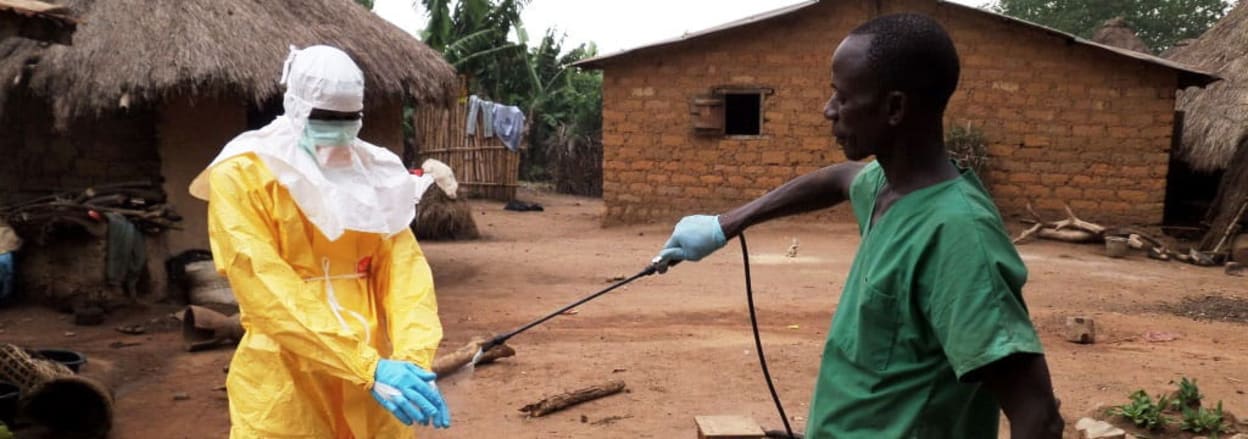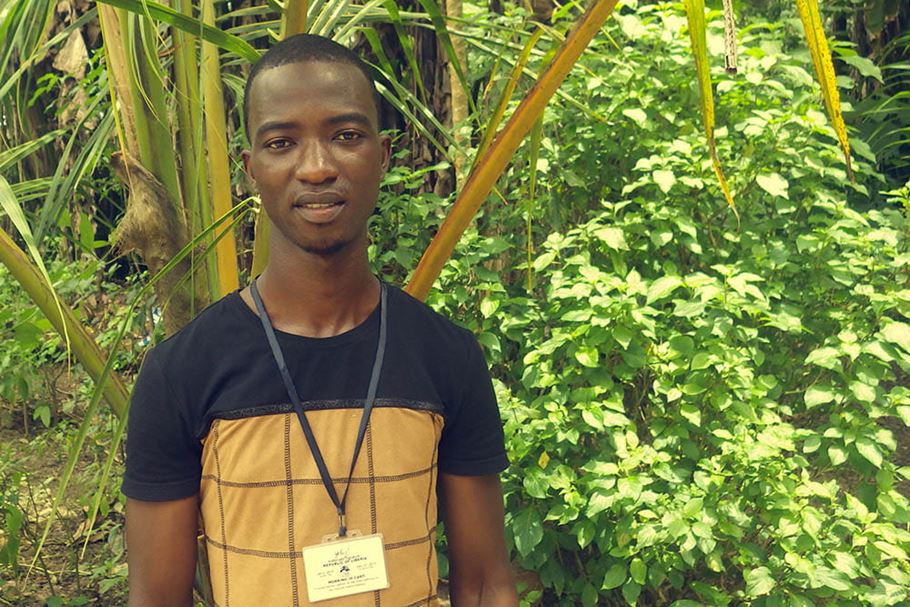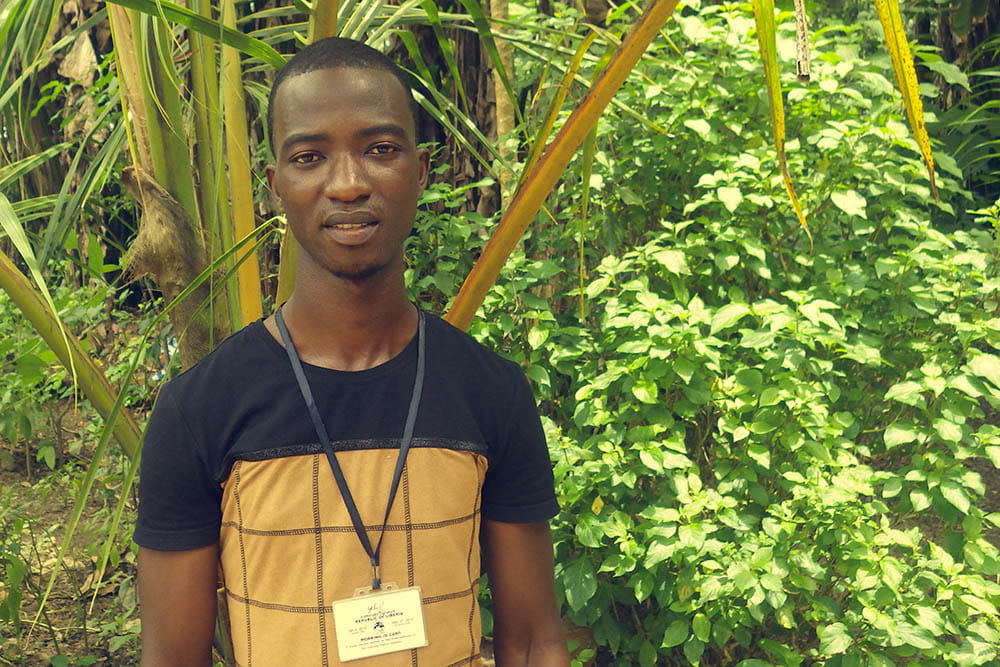Bobby is a dazzler in the fight against Ebola
Just a week after getting married, Bobby Konata found himself in the frontline of Liberia’s fight against Ebola.
Written by Mark Lang | 23 Sep 2015



Written by
Written by Mark Lang
Liberia is in a 90-day period of heightened surveillance after being declared Ebola-free. Watchfulness is vital. The outbreak, which has claimed nearly 5,000 lives in Liberia alone, was initially believed in be over in May, but new cases emerged in June.
Just a week after getting married, Bobby Konata found himself in the frontline of Liberia’s fight against Ebola. Here the 28-year-old talks about his experience of working with a Tearfund partner, the Association of Evangelicals of Liberia, tackling the disease.
How has Ebola affected Liberians?
Even before Ebola, Liberia was one of the poorest countries in the world.
Many stories I heard couldn’t stop me from holding back my tears. Often the virus took away the breadwinner, leaving the rest of the family very vulnerable. Children as young as ten are doing hard labour jobs to get food for the family.
What’s it like working on Ebola?
There was always uncertainty and fear working with Ebola sufferers. There are times when I came from the field and felt feverish and became fearful. What’s terrifying about the disease is knowing that if you come down with it, everyone who comes in contact with you risks being a victim. In January 2015, there was one incident I will never forget.
While interviewing a survivor, I had my back turned to the doorway of their little mud house. I heard a girl’s voice from in the house saying ‘Mama, Amos is vomiting’. Before I could turn around, the girl was running outside with the little boy and bumped right into me. Some of the vomit went on my clothes and my left hand.
I immediately took off the shirt and washed my skin with disinfectant. I was so afraid that I stood shivering like I had a chill. The child was taken to a nearby clinic.
When I got back to the guest-house where I was lodging, I broke down. I was very fearful because the fever may not appear for up to three days. I got on my knees and sincerely prayed to God to help me. God answered my prayer, he took away my fear and gave me the courage to continue.
How do you feel visiting communities?
Visiting communities was and is still a challenge. We have to walk up to eight hours just to get to some of our project communities.
Many parts of our country are inaccessible to cars and motorbikes, the only means of transportation is by foot. You cannot make phone calls or access the internet. But we knew that we were charged with the responsibility of giving hope to our people. We aimed to glorify God through being part of the solution to our people’s problems.
‘Liberia was on our heart; we knew that we had to do something in helping to fight this deadly disease.’


Bobby Konala
‘Liberians remain forever grateful to you all for your commitment in standing with us.’
Describe how you felt when Liberia was initially declared Ebola-free in June?
I was listening to the announcement on the radio with some friends. We started to record the difficulties we’d gone through as a people and how Ebola had devastated our country. Emotion grew and tears came dripping down our faces as we shared personal experiences of those horrific things we saw during the outbreak. But in all it was tears of joy, of how we fought together and won together.
How did you keep going after the outbreak returned?
Liberia was on our heart; we knew that we had to do something in helping to fight this deadly disease. We had a duty to discharge. The urgency for ending this killer disease in Liberia became our source of inspiration.
How have communities changed since the outbreak?
They have changed tremendously. Their level of awareness is enhanced, they are taking concrete efforts to be safe. Sadly, I personally feel there will always be some outbreak from this virus or other diseases as long as living conditions do not change. The poverty rate in Liberia is too high, the vulnerabilities are so many and the coping mechanisms are very limited. When an average Liberian tells you they haven’t eaten for about two days, it is not an exaggeration, it is a fact. Our people are dying from starvation and other curable diseases all because of abject poverty.
What’s your message to Tearfund supporters?
I’d like to say a very big thank you to Tearfund, the peace-loving people of the UK and all those who are supporting us in this Ebola fight. Liberians remain forever grateful to you all for your commitment in standing with us.
Share this page
Share this page to spread the word and help support those in need.

Get our email updates
Learn about our work and stay in touch with Tearfund. Hear about our news, activities and appeals by email.
Sign up now - Get our email updates




.png)

